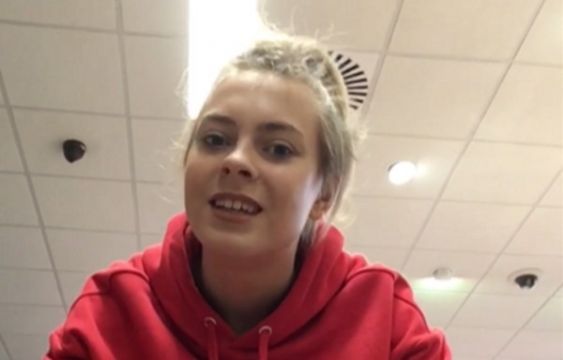A bid by a teenager who was found guilty of the murder of schoolgirl Ana Kriegel to introduce new evidence in his appeal against his conviction has been moved to a later date, at the request of the Court of Appeal.
The teenager, known as Boy B, and his co-accused, Boy A, were both found guilty by unanimous verdicts of murdering the “lonely and vulnerable” 14-year-old in June 2019.
The boys were 13-years-old when they attacked and killed Ana at an abandoned farmhouse at Laraghcon, Clonee Road, Dublin, on May 14th, 2018.
Boy B has since launched an appeal against the guilty verdict, and the Court of Appeal had been due to hear a motion next month to introduce fresh evidence to proceedings.
However, at a brief hearing on Monday, Court President Mr Justice George Birmingham said the previously arranged date for the motion on June 17th was causing “difficulty for one of judges”.
He also informed barristers representing the defence and prosecution sides in the case that a change to a later date was now being requested by the bench.
The motion will now be heard on June 22nd after Brendan Grehan SC, for the Director of Public Prosecutions (DPP), and Andrew Forde BL, for Boy B, said they had no objection to the proposed new date.
Boy B – who was sentenced to 15 years’ detention, to be reviewed after eight years, for Ana’s murder – was not present in court for Monday’s hearing.
Fresh evidence
At a previous hearing on March 11th, the three-judge court was told that the defence would be seeking to introduce fresh evidence during the appeal and challenge the admissibility of matters that weren't challenged at trial.
Mr Grehan, for the DPP, said the State had received the submissions on behalf of Boy B the previous week and anticipated that the application to "enlarge grounds" and introduce fresh evidence would be opposed.
Mr Justice Birmingham said the court had received a notice of motion on behalf of Boy B seeking to amend the grounds of appeal and introduce fresh evidence.
He also informed counsel that quite often the court deals with the motion and substantive hearing together but that it did not sound like this would be "such a case".
Seoirse O Dunlaing BL, for Boy B, confirmed to the court that three further grounds were being sought.
In July 2020, Boy B’s lawyers told the Court of Appeal that they were making a "very unusual application" to exceed legal aid limits so the teenager could seek the services of a UK psychologist ahead of an appeal against his conviction.
The court was also told that the thrust of Boy B's appeal would focus on the refusal to allow before the jury the evidence of a clinical psychologist, who said Boy B was suffering from post-traumatic stress disorder after witnessing the assault on Ana and that lies he told to gardaí did not show he was guilty of murder.
The Court of Appeal has previously stated that when Boy B's appeal is heard arrangements will be put in place for the hearing that both sides consider appropriate.
Minors
As both boys were children, the Central Criminal Court trial adopted procedures from the Children’s Court. Lawyers and judges wore suits and ties rather than gowns, while the public was denied access to the courtroom.
The court heard Boy B lured Ana from her home, knowing that his friend was waiting to attack her in the derelict farmhouse. He gave several different versions of events to gardaí, but eventually admitted to witnessing Boy A attacking Ana.
The boys were found guilty of murder by a Central Criminal Court jury. Boy A was also convicted of Ana's aggravated sexual assault in a manner that involved serious violence.

Boy A was sentenced to life imprisonment with a review after 12 years, and eight years imprisonment for aggravated sexual assault. No appeal has been lodged on his behalf.
Boy B is seeking to appeal against his conviction only, meaning no appeal is being sought against the severity of his sentence.
The two boys are currently detained in Oberstown Children Detention Campus, Lusk, Co Dublin.
Sentencing the boys in November 2019, Mr Justice Paul McDermott said that they would be transferred to an adult facility when they turned 18-years-old.







